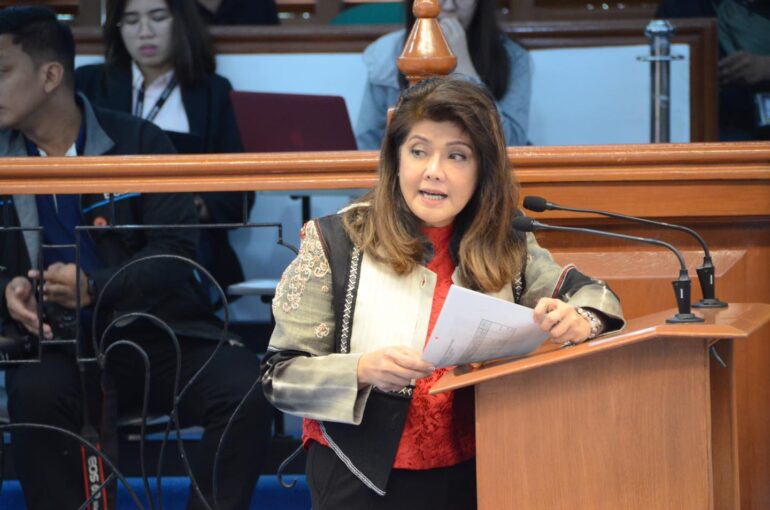TL;DR:
- Senator Imee Marcos calls for an inquiry into the effects of AI on BPO and OEM jobs.
- She is concerned about the possible loss of jobs in these industries due to AI.
- The BPO industry grew by 10% to $29.5 billion at the height of COVID-19 restrictions from 2020 to 2021.
- Oxford Economics and Cisco study predicts that at least 1.1 million jobs in the Philippines will disappear by 2028 due to AI.
- Deloitte predicts that 50% of organizations worldwide will adopt AI and automated machines this year.
- KMPG sees investments in AI and automation technologies increasing in the next three years by 50% to 100%.
- Marcos urges lawmakers to be educated about global developments in AI technology through a Senate inquiry.
- She suggests formulating regulatory measures to prevent severe unemployment.
- Marcos believes that the future of CSR should include the upskilling and training of workers in special services that AI cannot easily replace.
Main AI News:
Senator Imee Marcos, the chair of the Senate Committee on Social Justice, Welfare, and Rural Development, has filed a resolution calling for an inquiry into the potential impact of artificial intelligence (AI) on the business process outsourcing (BPO) and original equipment manufacturing (OEM) industries. She expressed concern over the potential loss of jobs in these industries, which have shown significant potential for job creation despite the pandemic.
In a statement issued on Sunday, the senator warned that AI is developing faster than most people can comprehend and is threatening to take away jobs, turning employment growth upside down. She asked, “Will call center agents and factory workers soon be treated as dispensable after propping up our economy during a global health crisis?”
Marcos cited data showing that the BPO industry grew by 10% to $29.5 billion at the height of COVID-19 restrictions from 2020 to 2021. However, she also noted a study by Oxford Economics and US-based digital technology company Cisco, which predicted that at least 1.1 million jobs in the Philippines would disappear by 2028 due to AI.
Furthermore, global consulting and advisory group Deloitte predicted that 50% of organizations worldwide would adopt AI and automated machines this year. KMPG, a professional services network, also saw investments in such technologies increasing in the next three years by 50% to 100%.
To address these concerns, Marcos urged lawmakers to be educated about global developments in AI technology through a Senate inquiry. She called for the legislative and executive branches of government to deal squarely with the “inevitable technological tsunami.” Marcos suggested that both houses of Congress take action and formulate regulatory measures against severe unemployment and make the necessary amendments to the Intellectual Property Code, Revised Penal Code, and Cybercrime Prevention Act.
In addition to legal safeguards, Marcos asserted that the future of corporate social responsibility (CSR) should include the “upskilling and training of workers in special services that AI cannot easily replace.” As the adoption of AI continues to grow, it is essential to ensure that workers are not left behind and that their skills remain relevant in the changing job market.
Conlcusion:
The growing adoption of AI and automation technologies in the BPO and OEM industries presents significant challenges for the job market in the Philippines and worldwide. The potential loss of jobs in these sectors could have a significant impact on the local and global economy.
It is essential for policymakers, industry leaders, and other stakeholders to take proactive measures to address the impact of these disruptive technologies on the job market, including regulatory measures, upskilling programs, and other initiatives to support workers and ensure they remain relevant in the changing job market. Failure to do so could lead to severe unemployment and economic instability, particularly in countries that rely heavily on these industries for job creation and economic growth.

